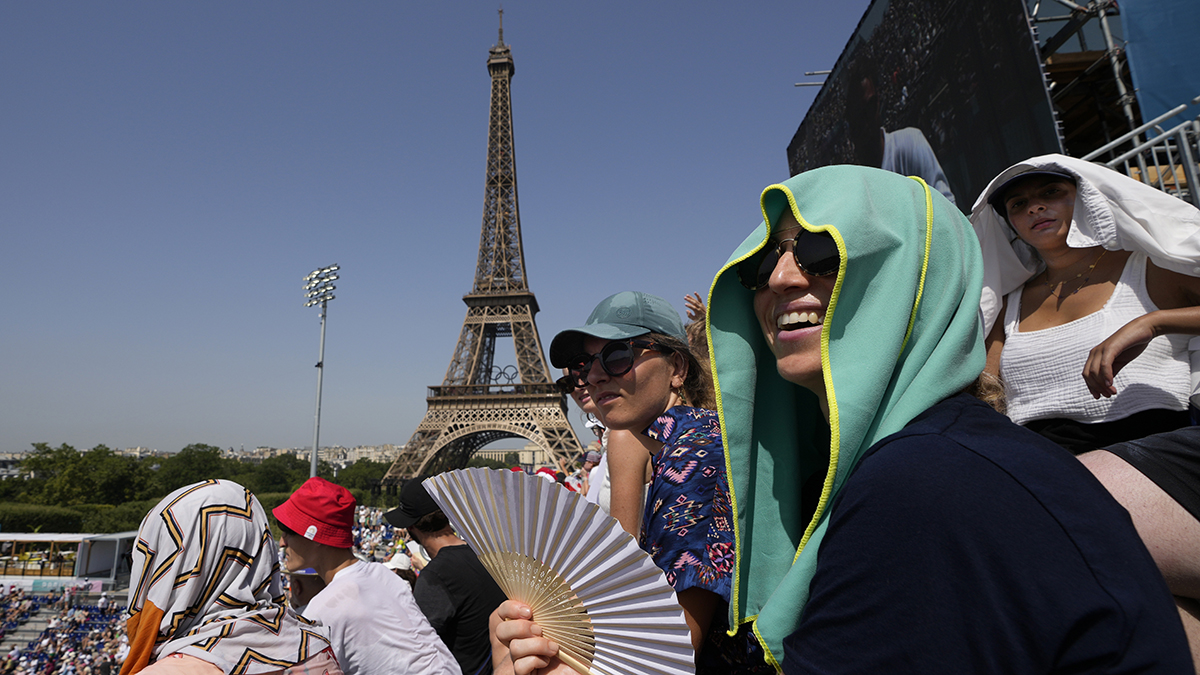
A burning car pushed into a gully sparked California’s largest wildfire of the year, authorities said Thursday as they announced the arrest of a suspect. Meanwhile other blazes scorched the Pacific Northwest.
Flames from the fire the man is accused of starting exploded into what is now the Park Fire, which has burned more than 110 square miles (289 square kilometers) near the city of Chico. Evacuations were ordered in Butte and Tehama counties, with the blaze only 3% contained by midday Thursday.
Watch NBC6 free wherever you are
>California authorities did not immediately name the man they arrested.
As evacuations continued in California, some Oregon residents were cleared to return home after a thunderstorm dropped welcome rain but also potentially dangerous lightning on the biggest active blaze in the United States. More than two dozen new fires started in Montana on Wednesday and early Thursday, and another fast-moving wildfire forced thousands to abandon a town in Canada.
Get local news you need to know to start your day with NBC 6's News Headlines newsletter.
>In eastern Oregon, evacuation orders were lifted Thursday for the city of Huntington, population 500, after a severe thunderstorm late Wednesday brought some rain and cooler temperatures to the nearly 630 square miles (1,630 square kilometers) burned by the Durkee Fire – the nation’s biggest – and another nearby blaze.
Baker County Sheriff Travis Ash called the rain a “godsend” and the Oregon State Fire Marshal said firefighters were set to “seize the opportunity” of better conditions to push back the fire on the Oregon-Idaho border that remained unpredictable and just 20% contained, according to the government website InciWeb.
Lightning strikes along the Oregon-Idaho border started 15 new fires overnight in Idaho, the U.S. Forest Service told Boise’s KBOI-TV, but several had already been extinguished by Thursday afternoon. More than 2,800 cloud-to-ground lightning strikes were detected across southeast Oregon and Idaho on Wednesday alone, the National Weather Service in Boise said Thursday.
U.S. & World
Overall, nearly 1,562 square miles (4,045 square kilometers) have burned so far this summer in the Pacific Northwest. Oregon alone has 34 large fires, almost all of them in the central or eastern part of the state.
Climate change is increasing the frequency of wildfires sparked by lightning across the Pacific Northwest and western Canada as the region endures recording-breaking heat, with many triple-digit days and bone-dry conditions. Idaho Power has for the first time instituted a pre-emptive power outage, shutting off electricity to thousands of customers to prevent new fire starts and other power grid issues from wires downed by the high winds, the utility said.
In northern California, fire personnel were focusing on evacuations and defending structures while using bulldozers to build containment lines ahead of the Park Fire. No deaths or damage to structures had been reported, CAL FIRE/ Butte County Fire Department said in a Thursday update.
A fire in southern California was much smaller, but moving fast and threatening homes.
Evacuation orders were in effect Wednesday night in San Diego County after a wildfire began to spread fast near the San Diego and Riverside county line. Fire officials say the Grove Fire was heading southeast through steep and challenging terrain. The fire grew to 1.4 square miles (3.6 square kilometers) overnight and was 10% contained by Thursday afternoon.
In Montana, a fire warning was in effect in the central part of the state due to high temperatures, low humidity and strong winds. An extreme heat warning east of the storm front meant temperatures could soar up to 108 degrees Fahrenheit (42 degrees Celsius). After hurricane-force winds toppled trees, downed power lines and damaged gas lines in the Missoula area, authorities urged people to stay out of rivers because they might be electrified.
In the Canadian Rockies’ Jasper National Park, a fast-moving wildfire this week hit the park's namesake town, forcing thousands to flee and causing significant damage in the World Heritage Site. That blaze, as well as those in the western United States, have forced some areas to declare air quality alertsor advisories as skies filled with smoke and haze.
___
Associated Press writers Claire Rush in Portland, Oregon; and Amy Hanson in Helena, Montana, contributed to this report.



